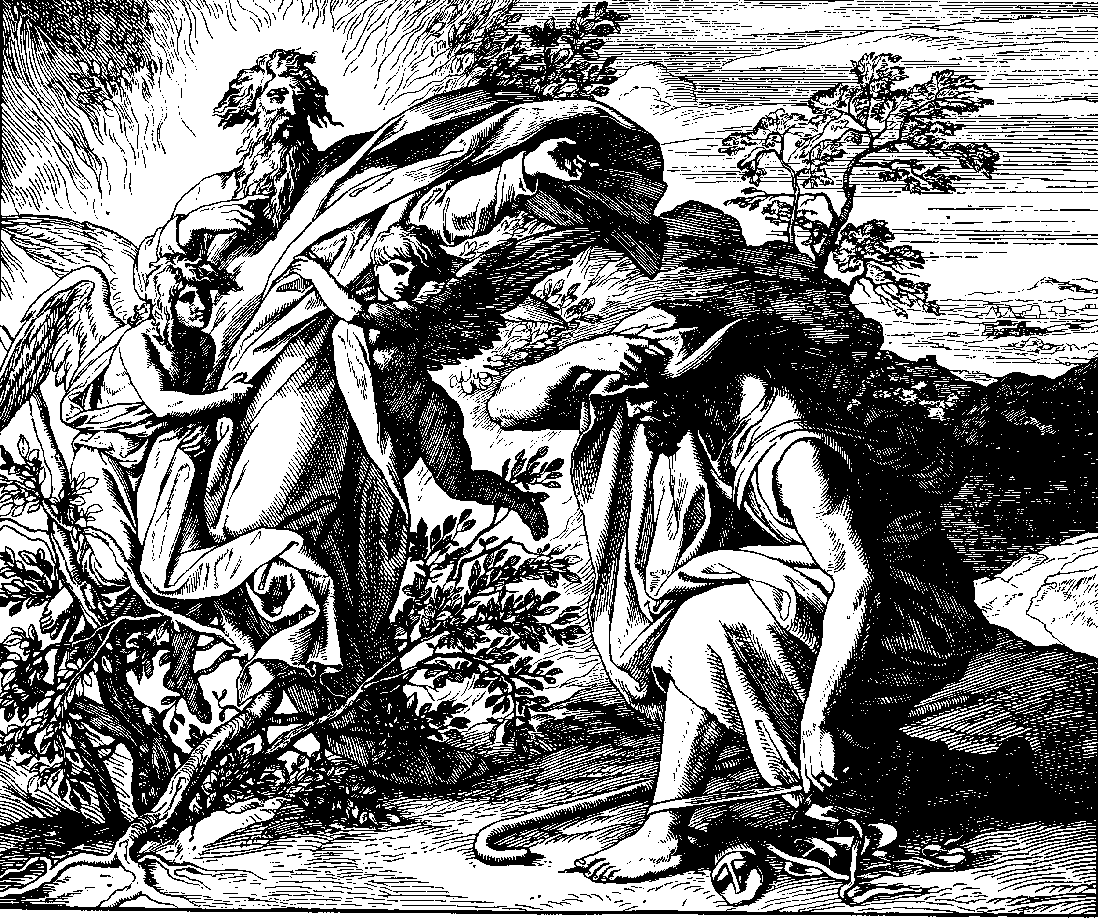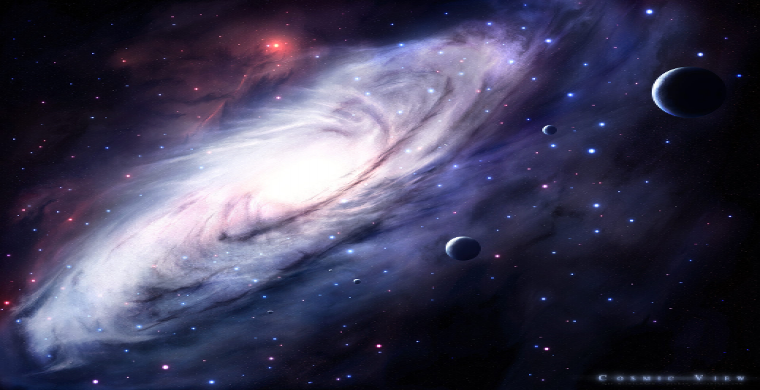Is Nature Divine?
By The Ven. Dr. Christopher Brown
Special to Virtueonline
www.virtueonline.org
March 17, 2015
Is the universe sacred? Is it, in itself, a divine thing? Increasingly, there are people who want to say that it is -- and for whom it is crucial that we recover a sense of the sacredness of the natural order. Western Civilization, they say, has undergone a process of "disenchantment" as it has embraced rationalized, technological and bureaucratic modes of understanding and organization. The once sacred cosmos has been reduced to an object to be exploited -- and the result is a growing ecological crisis, global warming, the rapid extinction of numerous natural species and a world out of balance.
For many, the ecological crisis derives directly from a religious crisis -- the loss of a sacred natural order. Nor is this just a modern problem associated with a post-industrial, post-Enlightenment age. The real culprit is Christianity, which replaced the immanent pagan divinities present within nature, with a transcendent God, who is distinct from the universe. Once Christianity had desacralized nature, and cut down the sacred groves of the pagan religions, they say, the rise of a secular, technological culture was an inevitable progression.
 The solution, many argue, lies not just in recycling, curbing carbon emissions, or developing alternative sources of energy, but in a return to paganism. In fact, in its various forms, nature-oriented paganism is one of the fastest growing religious movements of our day. The American Religious Identification Survey, from the Graduate Center of the City University of New York, determined that the Wicca religion, the most prominent version of this new paganism, had a growth rate of 143% between 1990 and 2001.
The solution, many argue, lies not just in recycling, curbing carbon emissions, or developing alternative sources of energy, but in a return to paganism. In fact, in its various forms, nature-oriented paganism is one of the fastest growing religious movements of our day. The American Religious Identification Survey, from the Graduate Center of the City University of New York, determined that the Wicca religion, the most prominent version of this new paganism, had a growth rate of 143% between 1990 and 2001.
This indictment of Christianity as the culprit behind the modern ecological crisis first appeared as a serious argument in an article published in the journal, Science, on March 10, 1967, entitled, "The Historical Roots of Our Ecological Crisis." The author was a medieval historian named Lynn White, who, though speaking of himself as a "churchman," concludes that "more science and more technology are not going to get us out of the present ecologic crisis until we find a new religion, or rethink our old one."
White stressed that ancient paganism treated the natural order as sacred, "in Antiquity every tree, every spring, every stream, every hill had its own genius loci, its guardian spirit." By asserting a transcendent God who was separate from the natural world, Christianity desacralized nature. Christianity, said White,
"...made it possible to exploit nature in a mood of indifference to the feelings of natural objects...The spirits in natural objects, which formerly had protected nature from man, evaporated. Man's effective monopoly on spirit in this world was confirmed, and the old inhibitions to the exploitation of nature crumbled."
The Disenchantment of the Natural Order
Many theologians agree that Christianity brought about a "disenchantment" of nature, but actually see this as a good thing. One of the most discussed theological books of the 1960's was Harvey Cox's, The Secular City. Professor Cox argued that the secularism of modern society has biblical sources and is not something Christians should regard as a threat. While Cox's basic thesis has not necessarily been vindicated by the passage of time, he makes a couple of important points in the initial stages of his argument. He agrees that the biblical doctrine of Creation did lead to a "disenchantment of nature," and this in turn relates to the redemptive events of the Exodus and a liberating "desacralization of politics."
Cox agrees that in the ancient paganism, both God and humanity were part of nature itself. By contrast, Christianity asserts that in act of creation, God stands over and above nature. By making nature less than divine, Biblical religion creates a sphere of human freedom. Humanity is no longer subject to the powers of nature and the deities associated with natural forces.
"In Genesis, the sun and moon become creations of Yahweh, hung in the sky to light the world for man; they are neither gods nor semi-divine beings. The stars have no control over man's life. They too are made by Yahweh. None of the heavenly bodies can claim any right to religious awe or worship."
The disenchantment of nature has a direct corollary in the realm of human society. In ancient societies the social order was also seen as divinely sanctioned. This flowed from the sacredness of nature, since the social order was part of an overall divine harmony. Often the ruler was regarded as a deity, as with the Pharaoh or the Roman Caesar.
"Just as nature is perceived by tribal man...as the locus of religious energy, so the political power structure is accepted as an extension of...the unequivocal will of the gods. The identification of the political with the religious order, whether in a primitive tribe where the chief is also the sorcerer, or in the Roman Empire where the emperor is both political ruler and pontifex maximus, betrays the same sacral legitimation of political power."
There is an elegance to the view that human society and the natural order are interwoven into a sacred harmony. It becomes less attractive, however, for those at the bottom of the social ladder who suffer exploitation and disregard. If the natural and social universe is a divine whole, there is no recourse for those who crave justice. Justice can only come from a God who stands apart from the social order, and can measure it against his own perfect standard of justice.
 This is precisely what takes place in the story of the Exodus. Moses encounters a God who announces himself as "holy" -- or "set apart." "Take your sandals off your feet," says the Lord, "for the place on which you are standing is holy ground." As a holy God, he delegitimizes the alleged divine status of Pharaoh, and is in a position to intervene. "I have surely seen the affliction of my people who are in Egypt and have heard their cry because of their taskmasters. I know their sufferings, and I have come down to deliver them out of the hand of the Egyptians." (Exodus 3:7-8)
This is precisely what takes place in the story of the Exodus. Moses encounters a God who announces himself as "holy" -- or "set apart." "Take your sandals off your feet," says the Lord, "for the place on which you are standing is holy ground." As a holy God, he delegitimizes the alleged divine status of Pharaoh, and is in a position to intervene. "I have surely seen the affliction of my people who are in Egypt and have heard their cry because of their taskmasters. I know their sufferings, and I have come down to deliver them out of the hand of the Egyptians." (Exodus 3:7-8)
"In tracing the desacralization of politics to its biblical roots, the Exodus must be the focal point of study...It was an act of insurrection against a duly constituted monarch, a pharaoh whose relationship to the sun-god Re constituted his claim to political sovereignty...it symbolized the deliverance of man out of a sacral-political order and into history and social change, out of religiously legitimated monarchs and into a world where political leadership would be based on power gained by the capacity to accomplish specific social objectives."
The disenchantment of nature -- and the desacralization of the political order -- go hand in hand with a God who transcends world and is the source of deliverance within the world. A divine cosmos proves to be not such an attractive thing after all. But if a transcendent God is a blessing for humanity, how are we to respond to the environmentalist criticism that this comes at the cost of degrading nature and subjecting it to human exploitation?
Subjugation or Stewardship?
A principle criticism that environmentalists lodge against Christianity focuses on God's command in Genesis that humanity should "subdue" the earth and "have dominion" over it. One could interpret this as a warrant to exploit the created order -- and perhaps it has been at various times in the course of history. But the emphasis of the text itself is on stewardship. The interpretation of "dominion" as oversight and care flows from the Creator's repeated declaration of goodness of creation at the conclusion of each day of his creative work. It is strengthened in the second creation narrative in Genesis 2, which stresses Adam's role of caring for the creation, "The Lord God took the man and put him in the garden of Eden to work it and keep it" (Genesis 2:14).
A New Heaven and a New Earth
In my view, the key counter argument to the environmentalist indictment of Christianity lies in the manner in which the Christian Gospel intertwines "the fate of the earth" with the Biblical drama of Fall and Redemption. Admittedly, this connection has been obscured by a popular understanding of salvation as the saving of "souls." The scenario painted by a certain type of "old time religion" stresses the individual's expectation of "going to heaven," and leaving this world irrevocably behind for an eternity in a disembodied spiritual realm. As the hymn puts it, "When I die, hallelujah by and by, I'll fly away." If the body is a mere "prison house for the soul" (as Plato put it) for which heaven is an eternal escape, then the material creation does in fact become expendable -- and the environmentalist criticism of Christianity might have a point.
The notion of salvation as the soul's eternal escape to heaven, however, fails to take into account the central Gospel message of Resurrection -- both the resurrection of Jesus, and our own resurrection when he returns to judge the living and the dead. Resurrection entails the renewal and transformation of the created order, because it has to do with bodies in all their physicality. As John Updike said,
"Make no mistake: if he rose at all
It was as His body;
If the cell's dissolution did not reverse, the molecule reknit,
The amino acids rekindle,
The Church will fall."
To deal with bodies is inevitably to include the entire substratum of material creation. In a climactic passage in the Epistle to the Romans, the Apostle Paul speaks of how "the creation waits with eager longing for the revealing of the sons of God....the redemption of our bodies" (Romans 8:19, 23). This longing flows from the fact that the created order shares both in the Fall and the Redemption of humanity. "The creation was subjected to futility," says Paul, and hence, "the creation itself will be set free from its bondage to corruption and obtain the freedom of the glory of the children of God."
The creation was "subjected to futility" when God declared to Adam, "cursed is the ground because of you...thorns and thistles it shall bring forth for you" (Genesis 3:17-18). It may seem arbitrary for the Creator to afflict the entire creation because of the disobedience two human beings, but the narrative assumes that while humanity is distinctly made in God's image, it remains an integral part of the creation. There is a solidarity between humanity and the rest of creation, both in its "subjection to futility" and in the final act of redemption when the dead are raised and the creation itself is set free from corruption.
The Book of Revelation paints a similar picture. When the dead are raised and Satan is consigned to the Lake of Fire, the redeemed are not swept up into a realm of pure Spirit. Admittedly, in an earlier vision in chapter 6, John sees the "the souls of those who had been slain for the word of God" under the heavenly altar. But this is only a provisional, intermediate state in which the souls of the righteous await the resurrection of the dead and the New Jerusalem coming down from heaven, when God creates a New Heaven and a New Earth.
In the Bible, the creation is not cast away and discarded, but shares in the final act of redemption. Hence, though not sacred or divine, it reflects the glory of the creator and is the object of his salvific purpose. Like humanity itself, the creation is of eternal value. We do not need to revert to some sort of nature paganism and deify the creation in order to lodge a protest against the despoliation of the natural environment. We need only obey the divine command, and exercise reverent stewardship of a created order that will be set from bondage and share in the glory of the children of God.
The Ven. Dr. Brown is Rector of Trinity Church, Potsdam, and a regular contributor to The Albany Episcopalian














